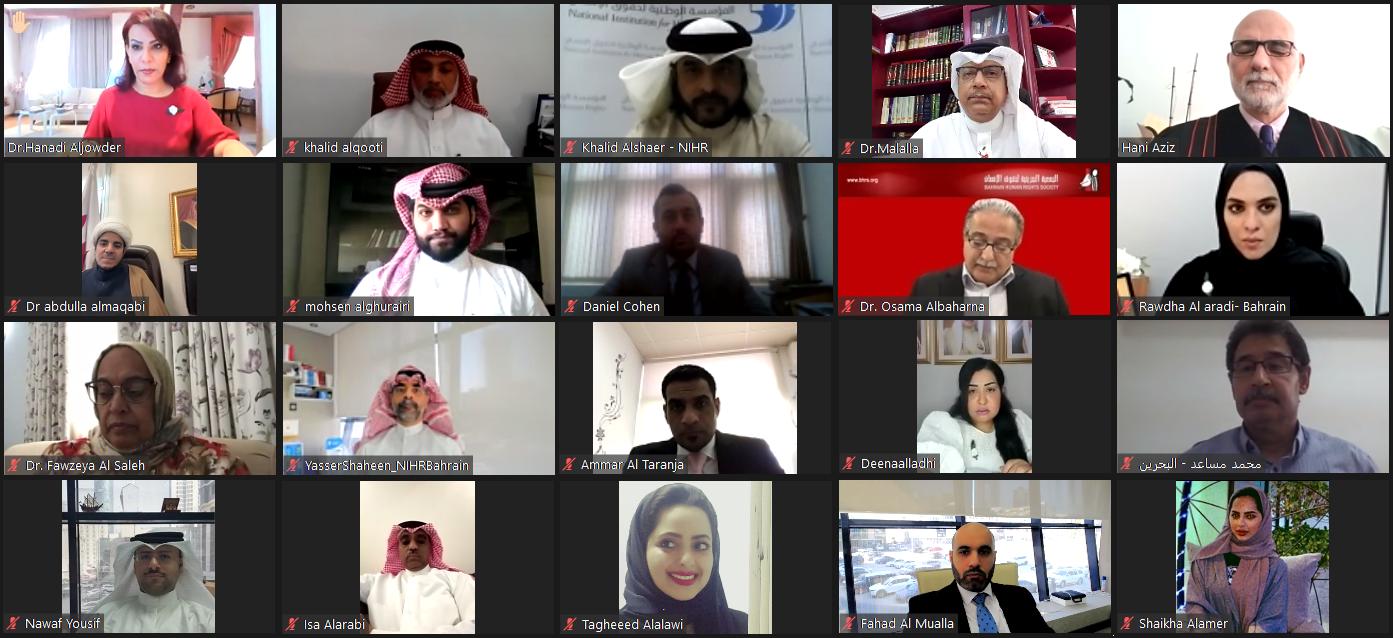NIHR Organizes the 1st Forum with Civil Society Organizations operating in the Area of Human Rights

In line with its role in promoting and spreading a culture of human rights in the Kingdom of Bahrain and building bridges of cooperation with civil society institutions, the National Institution for Human Rights (NIHR) has organized the 1st virtual forum for civil society institutions operating in the area of human rights by videoconference, which was attended by a number of civil society institutions operating in the human rights field in the Kingdom of Bahrain.
At the beginning of the forum, Mr. Khaled Abdul-Aziz Al-Sha’er, NIHR Vice-Chairperson, gave a speech on behalf of the NIHR Chairman, in which he extended his thanks to the participants and their permanent cooperation with the NIHR in order to achieve its desired goals.
During his word, Al-Sha’er praised the outstanding achievements of the Reform Project of His Majesty King Hamad bin Isa Al Khalifa, the King of the State, in the march of progress and development, which is an application of the Constitution of the Kingdom of Bahrain and the National Action Charter on the grounds, explaining that organizing this forum is based upon the NIHR’s responsibility and role towards civil society, which is an essential partner in the area of promoting and protecting human rights, by providing members of civil society institutions with knowledge, refining their skills in the area of training, promoting human rights to ensure sustainable protection of human rights on the territory of the Kingdom, building bridges of cooperation between the NIHR and other civil society institutions in the area of receiving complaints, providing legal aids and monitoring the human rights situation, and cooperating in examining the compatibility of legislative and regulatory provisions with regional and international treaties concerned with human rights issues and recommending appropriate legislative amendments.
The forum included three main themes, which shed light on the societal partnership between civil society institutions, the competent official authorities and the NIHR with the aim to develop ways to exercise all rights. The first theme discussed identifying aspects of cooperation between the NIHR and civil society institutions, especially in the area of receiving complaints, providing legal aides and building capacities their employees through organizing training courses, exchanging expertise and experiences in the field of human rights, and holding regular joint meetings.
The second theme discussed means of communication between civil society institutions and official bodies through the NIHR in order to provide legal opinions, discuss issues related to human rights and provide the necessary information.
The third and last theme discussed identifying difficulties and challenges faced by civil society institutions, such as the lack of headquarters for civil society institutions to carry out their work, and the scarcity of financial resources and powers.


